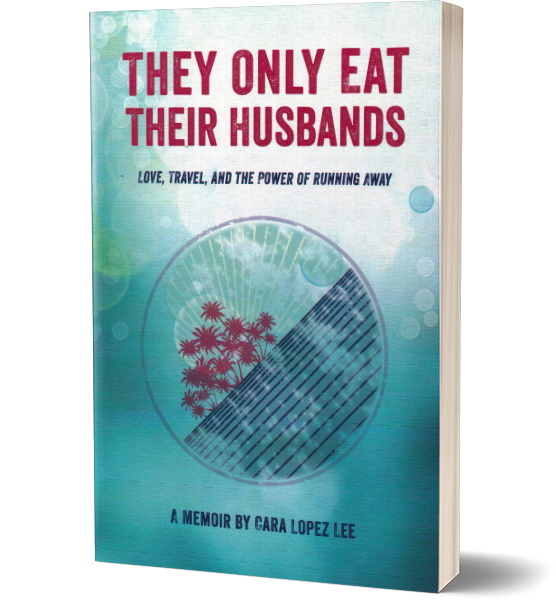
As I work on my novel, Tortillas from the Chungking Café, I find I create the most magical moments when I approach story as dreamspace. Have you ever looked up from reading a story and felt as if you’ve woken from a dream? I believe that happens because stories share much in common with dreams.
One thing dreams and stories have in common is that both are symbolic representations of reality. Humans experience everything through the five senses, so the more we attach sensory images to emotions, the more a story, or dream, affects us. Maybe the smell of cherries symbolizes joy, the sound of a train whistle calls up longing, or the feel of silk suggests sexual attraction. In both stories and dreams, we dive into collections of sensory images that symbolize human experiences and the emotions they trigger.
I invite you to try an experiment: take five minutes to write down a recent dream. You may notice it’s not as inexplicable as you thought. Here’s a dream I had:
My husband, Dale, and I were in an old camper driving up and down long curving highways, taking a road trip to explore the country. Even though the roads had long desert-like places in between, everyplace we stopped to enjoy the scenery and walk around looked like Alaska, with towering mountains and great blue-white glaciers. But I thought it was sad that there were so many tourists everywhere, and none of them had time to get out long enough to really see deep into the wild country, to take long hikes and get away from the crowds and roads. I felt caught up in them, so that I too wasn’t getting to see everything I wanted to see.
The first night, Dale and I stayed at a gas station that had cheap motel rooms. Our room had wooden bunk beds like you find in hostels and rough wool blankets like the kind some kindly grandma might have on her porch in a summerhouse. I felt that I lacked a sense of adventure because we got a room instead of camping, but I also felt that it was depressing that the only room we could afford was so cheap. Then I peaked outside and saw people lining up for a room, but there were none left, so I felt grateful that at least we had a room.
The next day the road remained long and flat, while the views remained tall and promising, but we never seemed to see much.
In one place we stopped at a crowded shopping mall, where we tried to convince people to come with us to a show involving blues music. But they all had preconceived notions that the blues would be a bunch of boring, over-the-top, silly show-tunes. Nobody would buy tickets. Then a group of performers from the show offered a preview in the middle of a crowd, running out in pairs and singing the way they do in old vaudeville shows. Many of the numbers were soulful or grinding or badass blues that got into your chest and under your skin. After that, our friends wanted tickets.
But as everyone got into our camper to go to the show, we realized we were tired and just wanted to go home. I said we should call our tour guide and tell him to cancel our tickets. But Dale said the guide had never bought the tickets anyway, because he had never been sure we were going. So we headed home, as I laid a head on Dale’s shoulder, relieved, though I still had a disappointed feeling I hadn’t seen anything and should keep traveling.
When I wrote that dream down, I realized two things: 1) I was feeling stretched thin by obligations and needed to have more fun, and 2) much of what happened in my dream could happen in a story!
In storytelling, so much is filtered through the subjective lens of the characters or expressed in metaphor—much like dreaming. In this passage from Back in The Real World, a novel I coauthored with Vietnam War vet Ed Turner, the main character recalls a memory that has a dreamlike quality:
How could Frost have forgotten? They had thought to dig up a hidden storage space to hide Sanduski’s midnight requisitions. But they’d gotten carried away. It kept getting bigger and bigger, until they didn’t know the purpose anymore. “I said it was like digging a hole to China,” Frost said, “and that really cracked us up, because we realized we were already on the same side of the world as China. So then I said, ‘I guess in China they dig holes to America. So, dig in buddy, we’re going home!”
She grinned. “Yes, I see.”
When the hole got big enough, they’d put sandbags in it to sit on. They covered it in rubber tree fronds and climbed down into the shade whenever the heat got to them in the hooch. Jackson would tell Frost his ideas for novels and Frost would find holes in his plots, or they would both talk about their families back home: Frost’s younger brother, who got on his nerves, yet who he worried about all the time; and Jackson’s older brother, who picked on him mercilessly, yet who protected him from any bully who dared do the same. Sometimes they simply napped. “It only lasted a couple of weeks,” Frost said.
“He tell me big rain come, and hole fill with mud,” An said. “I tell him this will happen. This is why we build hut on legs.”
“Yeah. But it was great. Dinky laughed at us, saying the same thing as you. ‘I told you so,’ he said. So we threw him in. He was covered with mud. He tried to jump out, threatening to take us both on, but he kept sliding back into the hole.”
I’m discovering that, for me, the art of the novel is the art of dreaming awake.




